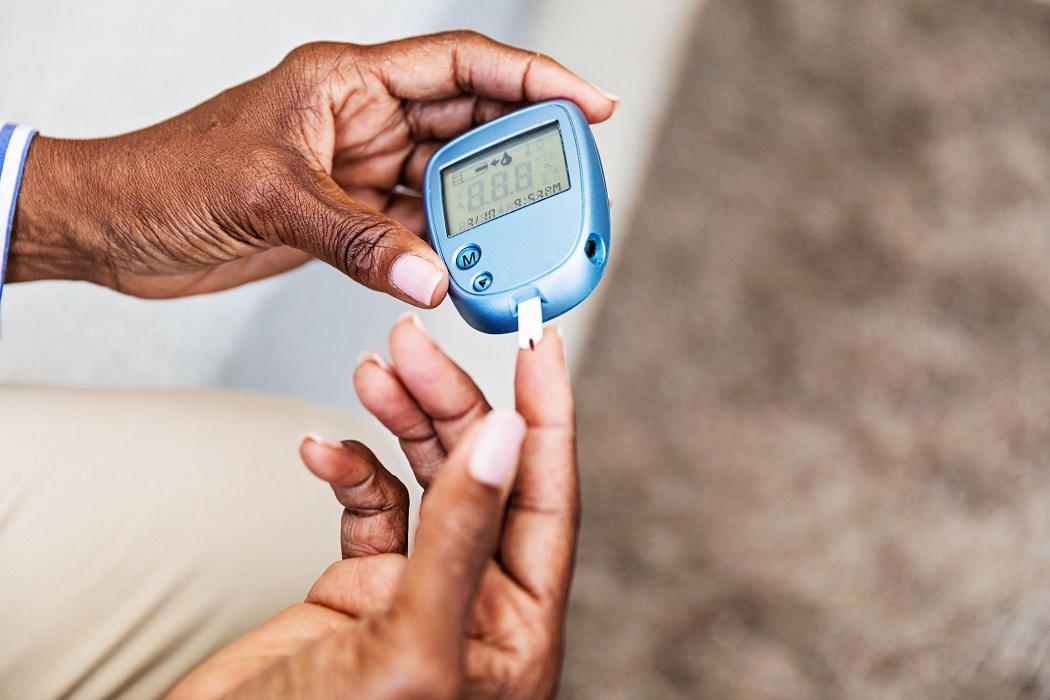
Top 5 Foods Diabetics Should Avoid
Table of Contents
We all know the risk of diabetes and heart disease that comes with eating a diet high in fat. But have you also considered the risk of developing diabetes if you’re a type 1 diabetic? If not, you should. Like every other diabetic, people with type 1 blood sugar disease risk having complications such as nerve damage from high blood pressure, kidney disease, and heart disease. The good news is that there are certain foods to avoid when dealing with diabetes that can help to prevent complications. In this blog, we’ll list down some of these foods and the reason for avoiding them.
5 Foods to Avoid if You Have Diabetes
Processed foods are sugar bombs that can have a huge effect on blood sugar levels. They typically contain high levels of sugar, unhealthy fats, and additives, making them an unhealthy choice for anyone with diabetes. Sweets and sugar-rich snacks are another no-no for people with diabetes. These foods contain sugar and calories, which can spike blood sugar levels and cause inflammation in the body. This can lead to insulin resistance and diabetes complications such as weight gain and heart disease.
Seafood is a high-Calorie food that contains fat and protein, which can spike blood sugar levels. Grains are high in carbs, which can also cause blood sugar spikes. Eating healthy can help manage diabetes symptoms and prevent complications.
If you’re looking for a way to make a little extra money, sell diabetic test strips might be the perfect solution for you. If you’re interested in starting a business selling diabetic test strips, don’t hesitate to get in touch with us to learn more about how it can work for you.
Processed Meats and Saturated Fats
– Processed meats: These are meats that have been treated with a process such as smoking, salting, or curing.
– Saturated fats: These fats are found in foods like animal fats, butter, and cheese.
– Trans fatty acids: These are partially hydrogenated oils found in processed foods and some fast food items.
– Sugary-sweetened beverages: These drinks are high in sugar and calories and can contribute to weight gain and obesity.
– High-fat diets: Eating too much fat can lead to insulin resistance, diabetes, heart disease, and other health problems.
With the right nutrition and healthy lifestyle choices, it is possible to reduce your risk of developing diabetes. Besides eating a balanced diet, avoiding processed foods can also help you manage your diabetes. A healthy diet includes plenty of fruit, vegetables, whole grains, lean protein sources such as fish or poultry, low-fat dairy products, and healthy fats such as olive oil or peanut butter.
Refined Carbs and Sugary Foods
-Refined carbs and sugar are two of the biggest culprits when it comes to unhealthy eating habits and diabetes complications.
– Avoiding refined carbs and sugar can help you control your blood sugar levels and reduce your risk of developing diabetes-related complications, like heart disease, stroke, and kidney disease.
– But it doesn’t mean you have to avoid these foods completely. Rather, focus on eating healthy whole foods instead of refined carbs or added sugar.
– That includes fruits, vegetables, dairy foods, whole grains, lean protein sources, and healthy fats sources. In addition to eating healthy food choices consistently, be aware of hidden sugar in common foods such as canned goods and processed foods.
Dried Fruits and Packaged Snacks
Diabetics should avoid eating sugar-containing dried fruits and packaged snacks, as these can spike blood sugar levels significantly. Additionally, diabetics should avoid sugar-containing sweets, such as ice cream and sodas, as these may cause blood sugar levels to drop too low, which can lead to fatigue and irritability. Diabetics also need to avoid high-fat foods, such as french fries, cold cuts, and other snack foods high in fat. These foods can spike blood sugar levels and lead to weight gain. Finally, diabetics should limit their salt intake and avoid drinking alcohol while on insulin therapy due to the risk of developing dangerous hypoglycemia side effects.
High-Fat Dairy Products
High-fat dairy products are high in fat and calories and can increase blood sugar levels quickly. In addition, high-fat dairy foods can contain high levels of cholesterol and saturated fat, which has been linked to heart disease. Therefore, it’s important to limit the amount of high-fat dairy foods you consume and to opt for healthier types of dairy when possible. High-fat dairy products can cause weight gain and obesity, so it’s important to watch your intake of these types of food. If you’re a person with diabetes, it’s vital to manage blood sugar levels as best as possible.
Fried Foods
– Fried foods are high in calories and fat, but contain no nutrients.
– Fried foods are often high in saturated fat and cholesterol, both of which can lead to increased heart disease risk.
– Eating fried foods may also cause insulin resistance, which is a precursor to type 2 diabetes.
– To avoid eating fried foods, focus on whole grains and vegetables as the foundation of your diet. This will help you stay healthy and fit.
What are the best ways to limit or avoid consuming these foods?
If you have diabetes, it’s important to avoid foods high in sugar, grains, and processed foods. A diet low in sugar, grains, and processed foods can help regulate blood sugar levels and reduce the risk of complications related to diabetes. In addition to consulting with a healthcare professional, it is also important to track your blood sugar levels regularly to ensure that you’re on the right track.
What are some tips for cooking with these foods in a diabetic diet?
There are a few tips that can help you cook with these foods in a diabetic diet.
When cooking with these foods, be sure to use low-glycemic index ingredients. This means selecting food items that have low glycemic indexes (GI), which means they cause your blood sugar levels to drop slower after eating. Foods with low GI levels include white rice, whole grain breads, pasta, and sweet potatoes.
Avoid processed foods, sugary drinks, and high-calorie foods. These foods are all high in sugar and carbs, which can spike your blood sugar levels and make it difficult to manage your diabetes symptoms.
Check the carbohydrate and sugar content of the food before eating. This way, you’ll be better equipped to estimate how many insulin doses you’ll need to adjust your diet in light of what you’re eating.
Be mindful of how much insulin you need to adjust your diet in light of the food you are eating. This is especially important if the food item has a high sugar or carbohydrate content. For example, if you’re eating white bread or sugary cereal, then you may need to inject insulin earlier than usual to avoid developing type 2 diabetes.
Now that you know which foods to avoid, let’s move on to the foods that diabetics can eat. You should eat a varied diet and ensure that you eat a range of wholefoods, such as fruit and vegetables, wholegrains, fat-free dairy products, fish and low-fat proteins such as poultry, eggs, beans and lentils, when possible. When eating sugar and starch-rich foods, try to choose alternatives with added fiber, such as fruit or yogurt instead of sugar-sweetened beverages. If you are able to keep a food diary for a week before starting insulin treatment, it will help you notice any changes in your eating habits. Besides checking blood sugar levels regularly and limiting high-calorie foods and sugar-containing drinks, there is no other way of managing diabetes.


